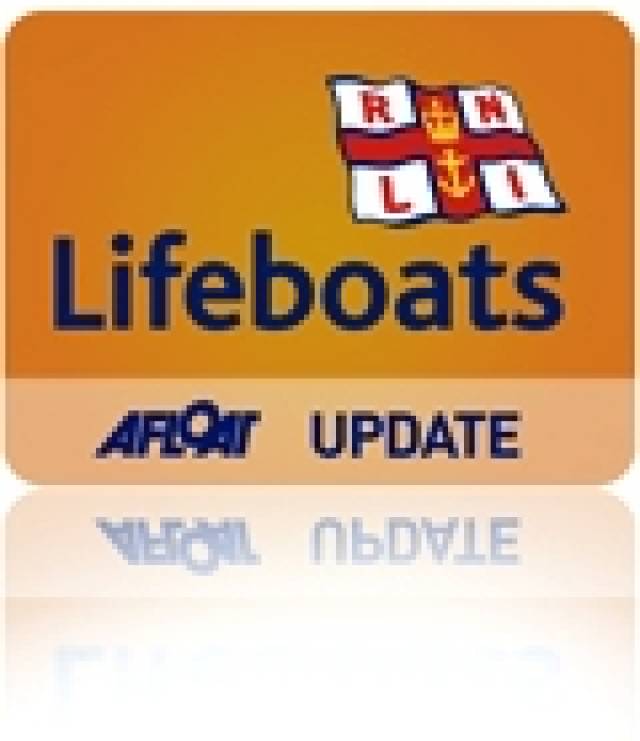#RNLI - The RNLI brought two of its all-weather lifeboats into Belfast on Wednesday 17 June for the charity’s 190th anniversary of saving lives at sea.
To mark the milestone, the RNLI hosted an awareness day in the Titanic Quarter with a full display of their life saving equipment including the Severn and Trent class all-weather lifeboats, RNLI beach lifeguards and their vehicles and the Flood Rescue kit.
The lifeboats were crewed by volunteer lifeboat crew members from Northern Ireland lifeboat stations.
First Minister Peter Robinson visited the event to meet with the RNLI lifeguards and volunteer lifeboat crew, view the lifesaving equipment and learn about the work of the charity in Northern Ireland.
The First Minister also boarded the Severn class lifeboat for a short trip around Belfast Harbour.
"We wanted to bring a little bit of the RNLI to Belfast city," said RNLI divisional operations manager Gareth Morrison. "There is huge awareness of the work of the charity out on coast and at the inland stations where we are present but we wanted to bring our volunteers and equipment into the city for people to see.
"With the awards taking place in the Titanic centre it was a fitting way to mark 190 years saving lives."
The day culminated with the RNLI Annual Presentation of Awards for Northern Ireland fundraising and operational volunteers, which this year was held at Titanic Belfast.
RNLI volunteers and supporters from across Northern Ireland were recognised for their dedication and commitment to raising funds and awareness for the lifesaving charity and for playing a pivotal role in ensuring lifeboat crews and lifeguards can continue to save lives at sea.
Guest of honour and presenting the awards was RNLI chairman Charles Hunter-Pease, who was attending his first awards ceremony in Northern Ireland since taking up his role with the charity last year.
The awards included five gold badges, three silver badges, six bronze badges, 14 inscribed statuettes, six regional supporter awards and six certificates of thanks.
Among the gold badge recipients was Rita Jarvis from the Bangor branch, who was described as an outstanding volunteer who had worked tirelessly for over 20 years for Bangor RNLI.
Hubert Annett from Kilkeel was acknowledged as one of the station's characters, who had performed various roles including that of deputy launching authority over the last 20 years.
Guests heard how Kay Magee joined Maghera RNLI over 30 years ago and remained a driving force at the inland branch throughout.
Gavin Weatherall from Newtownabbey RNLI was acknowledged for his devotion to fundraising for over 25 years with roles including that of treasurer and more recently secretary of the branch.
Patricia Ritchie, the fifth of the gold badge awardees, was described as a highly devoted secretary at Portadown where she has worked tirelessly for more than 23 years.
Two gold badge recipients collected their awards at the RNLI’s annual presentation of awards in London last month. These included Lennie Lawson, deputy launching uthority at Portaferry RNLI and Patricia Crossley, chairman of the Ballymoney fundraising branch. Merwyn Hanna MBE from Kilkeel Fundraising Branch was made an Honorory Life Governor.
Praising the awardees, Hunter-Pease said: "It all starts with the people who give their time, their donation and their expertise.
"Over the decades, as we have expanded our service and developed new craft and facilities; our volunteers, fundraisers and supporters have become more important than ever.
"Without them there is no lifeboat station, no lifeguard unit, no flood rescue team, and no coastal safety work preventing tragedies."































































